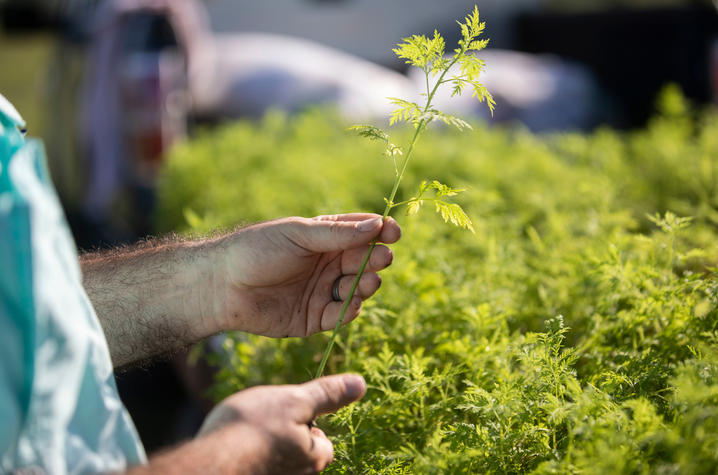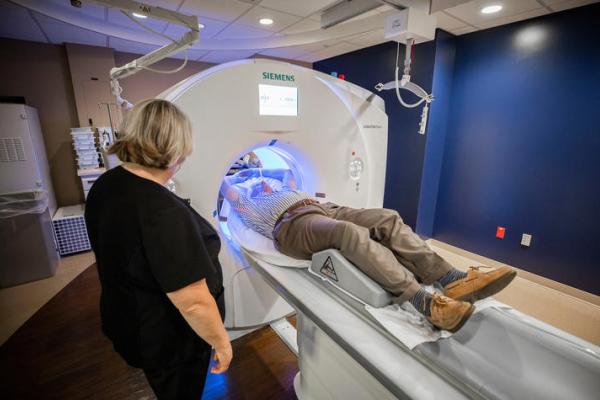Plant-based coffee yields promising results in Markey ovarian cancer trial

University of Kentucky Markey Cancer Center researchers presented promising results from an early-stage clinical trial investigating a unique coffee-based approach to ovarian cancer maintenance therapy at the Society of Gynecologic Oncology annual meeting in Seattle.
The study examined ArtemiCafe® Decaf, a commercially available decaffeinated coffee product containing a controlled dose of Artemisia annua, a plant that has been used medicinally for centuries and is known for its antimalarial properties. Recent laboratory research has shown the plant may also have anti-cancer properties.
Preliminary findings of the phase 1 trial show that ArtemiCafe® Decaf is safe and well tolerated by patients at a dose of four cups daily. Additional patient follow-up is needed to determine its efficacy in the treatment of ovarian cancer.
“This trial represents an important step in exploring how Artemisia annua might help patients with ovarian cancer after they complete standard treatments,” said Frederick Ueland, M.D., a gynecologic oncologist with the UK Markey Cancer Center and study investigator. “Finding a well-tolerated maintenance therapy that could potentially delay or prevent recurrence would be transformative for ovarian cancer care.”
The study, which was led by Jill Kolesar, Pharm.D., who now serves as dean of the University of Iowa College of Pharmacy, builds upon Markey Cancer Center’s ongoing research with Artemisia annua. Previous laboratory studies conducted by Markey researchers demonstrated that artesunate, a compound derived from the Artemisia annua plant, showed strong anti-cancer activity against ovarian cancer cells at clinically achievable concentrations.
ArtemiCafe® Decaf is currently being evaluated in a phase 2 clinical trial at Markey, which is focused on maintenance therapy for prostate cancer patients.
“We are proud to collaborate with the University of Kentucky’s Markey Cancer Center on this important research,” said ArtemiLife CEO Adam Maust. “Artemi’s mission is to support scientific advances while producing an innovative product to integrate seamlessly into daily routines.”
Kentucky also has a special connection to this research, as it is currently the only state growing substantial amounts of Artemisia annua. The Kentucky Tobacco Research and Development Center at the UK Martin-Gatton College of Agriculture, Food and Environment currently grows the plant on the university’s Spindletop Farm; researchers across UK use the yields of that farm. ArtemiLife products use Artemisia annua plants grown at two Kentucky farms in Georgetown and Lancaster.
More from this series Research Priorities - Cancer
Credits
Words: Elizabeth Chapin (Public Relations and Strategic Communications)
Photos: Pete Comparoni (UK Photo)


